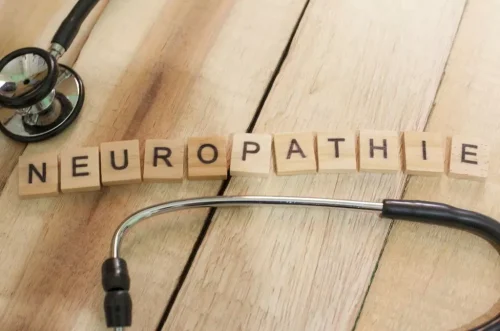
Now, when you encounter these sensory reminders — known as “triggers” — you may get a feeling of anxiety, unease, or panic. Short-term coping strategies can help you get better at dealing with specific emotional triggers as the come up, but that doesn’t mean you have to just get used to living with them. An https://ecosoberhouse.com/ emotional trigger is anything — including memories, experiences, or events — that sparks an intense emotional reaction, regardless of your current mood. The Massachusetts Center for Addiction specializes in helping individuals understand their triggers and build the emotional skills needed for recovery.

Ways of Dealing with Triggers in Recovery
- Awareness of potential triggers and reaching out to your support system when needed can help overcome the challenges posed by reminders of past use.
- Talking through the trigger and enlisting someone else’s help can provide you with the motivation and assistance needed to overcome the trigger and stay sober.
- External triggers are situations or objects in your environment, while internal triggers emerge from inside of your own body.
- It’s also important to seek professional help if triggers are interfering with daily life or causing significant distress.
- Some researchers believe that the brain stores memories from a traumatic event differently from memories of a non-traumatic event.
- There is no shame in asking for help – it’s an act of courage and self-care.
However, Mezulis notes that even people without a history of trauma can be triggered when something elicits a strong emotional reaction. While it can be difficult to control triggers, those who experience them can learn from past experiences, apply what they learn, and limit the risk of being re-triggered. Avoid only focusing on what happens after a trigger; also focus on what can be done beforehand. Understanding, identifying, and working to prevent triggers can be empowering and effective, especially in comparison to supporting someone after they have been triggered. Staying humble in addiction recovery can help prevent overconfidence and the potential for relapse.
Internal Triggers
“I like to conceptualize triggers as landmines; we didn’t put them there and neither did the immediate circumstance that put you into this triggered state,” says Harlich. Others may casually say they’re triggered anytime something angers or upsets them, further causing the word to lose its meaning. No doubt, these warnings may help certain people with PTSD, particularly if they’re in a vulnerable state in that given moment.

I’m An ICU Surgeon & This One Thing Makes A Major Difference In Your Health
Someone exposed to a trigger while symptomatic may be more vulnerable and the emotional reaction may be stronger. Additionally, a trigger can impair judgment and some people may lack insight about their reactions. For example, a news report covering a trauma similar to what you experienced might trigger symptoms of PTSD.
Evolution ingrains survival responses
- Triggers reveal our emotions behind anger, attachment style, and unmet needs.
- Reach out to one of our understanding team members today to learn how you can start on your path to recovery.
- When you face triggers, your support system can help you quickly change your environment.
- Your therapist can also teach you tools and strategies for coping with cravings and triggers.
What all triggers share, though, is their ability to affect a person—sometimes quickly, sometimes gradually—which, for many, leads them to use or misuse of substances as a response. As a result of this increased awareness, your emotional reactions may feel more understandable, valid, predictable, and less out of control. Reactions differ from person to person, shaped profoundly by our individual histories and psychological frameworks.
What are the 5 causes of relapse?

As a recovering addict or alcoholic, identifying what some of your triggers are and preparing to deal with them can help maintain long-term sobriety. Below are some common internal and external triggers that you may face after leaving a recovery center. It is important to note that these are not all the possible triggers you could face. But external triggers can become internal triggers if they bring up experiences you haven’t processed. Being able to identify triggers and implement healthy ways to manage them will be critical skills for your recovery journey. There are two main types of triggers that can start someone towards the path of relapse.
- Only you can heal your triggers, so take a little time to go inside and make sure to be patient, kind, and compassionate.
- In either case, understanding your triggers forms a significant part of a successful recovery journey.
- Others say trigger warnings can reinforce avoidance behaviors, which might only exacerbate PTSD in the long term.
- Identifying your triggers is one of the most effective steps you can take in managing them.
- This not only helps you overcome them but may also be beneficial for examining and understanding what may have led you to substance use disorder.
Can You Die from Alcohol Withdrawal?

We all have emotional triggers – sensitive buttons that spark immediate, intense reactions when pressed. Often stemming from past trauma, triggers unleash stress hormones before logic intervenes. Learning to defuse these reactions is essential for relationships and well-being. It can be hard to navigate your way through this state, internal vs external triggers and removing yourself physically may not always be an option. But one thing you can always do is ground yourself by balancing your physical energy, thoughts, and emotions, so you feel centered and safe in the moment. Boosting mindfulness skills can help you become more aware of the emotions that come up throughout the day.
- Unpleasant events can provoke strong reactions in anyone, but when you can manage triggers effectively, you’ll find it easier to navigate tense situations without unnecessary distress.
- Your response to these events can vary based on your frame of mind and the circumstances surrounding the situation.
- If you or a loved one are struggling with addiction or co-occurring disorders, call the New England Recovery Center today at MyRehab.
- Mental health conditions may be a significant internal trigger, especially if you have an undiagnosed mental health disorder.
- Until Maddie began her work with me, she didn’t realize that “unavailability” is her trigger and that she most often tries to avoid her old pain by blaming her husband.
Find Substance Use Disorder Treatment Today
Each person must identify what works best for them through trial and error. Different coping strategies may work for different triggers and emotions. While daily mindfulness helps manage reactions in the moment, some emotional triggers run very deep.